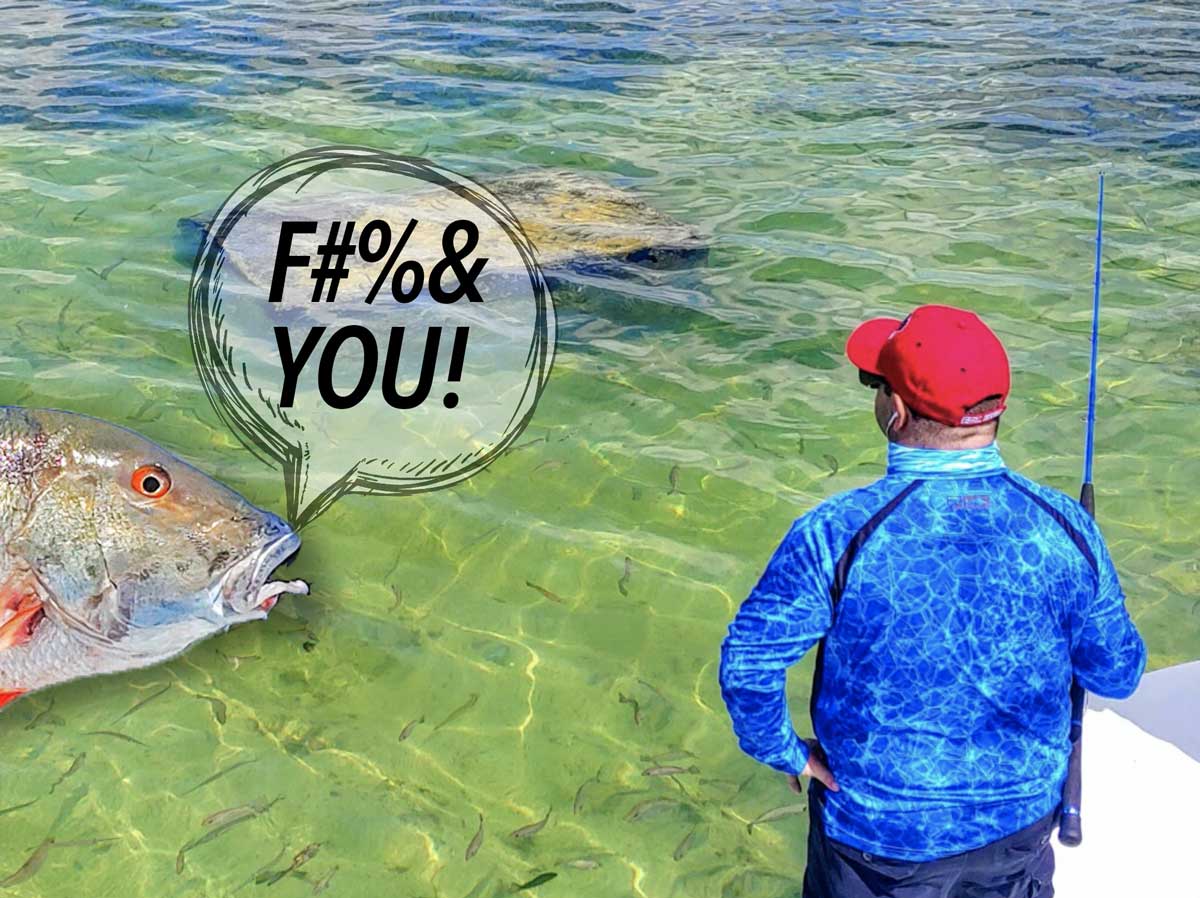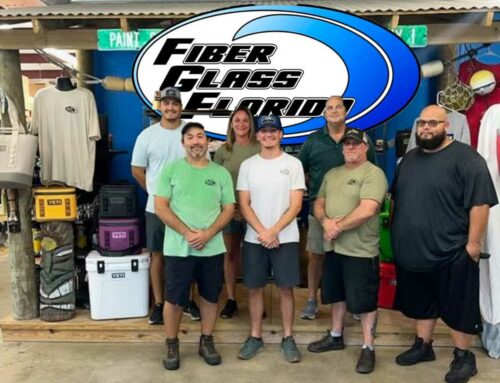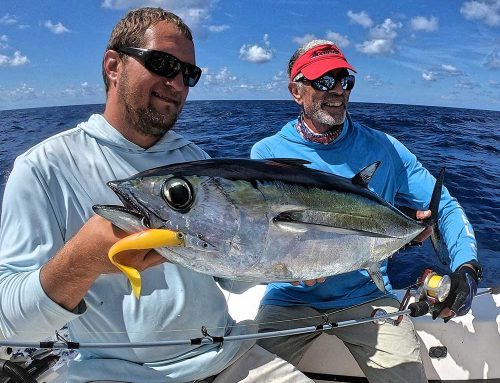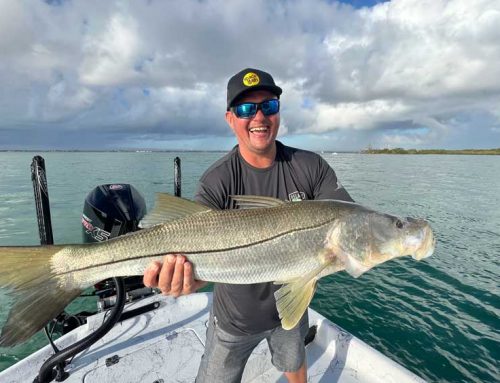When A Fish Gives You The “Finger”
by Capt. Chris Berglund

Capt. Chris Berglund offers some great insight on how to respond to a fishy middle finger.
Dammit fellas, I love fishing! I love the game, the mystery, the preferences and prejudices. I love that no matter how much we know, or don’t know, we invent. We resort to child-like ambition and possibility. Every day is new.
The advent of the internet makes new technology and techniques easily shared and accessible like never before. Things such as Tungsten weights and jigs, knottable steel leader, and 16 strand braided lines, are fast becoming the norm. Things are discovered, and shared faster than ever on the multitude of internet fishing forums. I’m often wrong about technique or tackle choice, which I actually welcome, as it is the best way to hone your skills during a particular condition and location. Being wrong about what’s working gives you the opportunity to experiment with new tactics, increasing your overall game exponentially. Every day is a new equation waiting to be solved. I’m happy to make mistakes, it’s the best way to learn.
Everyday on the water is an adventure with new obstacles to overcome and riddles to solve. Don’t get discouraged when things don’t take off on the first drop, instead slow down and try to “read” just what it is that the ocean is trying to tell you. For instance, time of day, or year, tidal phase and current speed or lack of, leader and hook size, too much or too little weight, too fast, or too slow of a retrieve. The sheer number of variables at play on any given day and location are almost infinite, and the numbers of ways you can change tackle and techniques to suit the conditions are just as infinite. Don’t let that discourage you, instead, I like to look at it as an opportunity to experiment with new techniques, as I’ve often found that there is never a truly wrong way to fish, but there is always another way to get the same or even better results.
Having a fish give you the finger on your “go-to” rig provides you the opportunity to justify all the money you have sitting in that fancy new box that has rarely, if ever, seen any action since it was bought. You’ll never expand your arsenal of knowledge if you don’t get the “finger” every once in a while. It’s those days when it seems I couldn’t buy a bite, that expand my knowledge and techniques the most. Don’t get me wrong, the days when fish jump in the boat are certainly welcome, but I’ll learn far less on those days than on the days I’ve gotta work for it. There’s also incidental benefits on those tough days, too.
As you try new rigs and techniques, you’ll be constantly cutting and re-tying knots just as much, giving you the opportunity to try new knots, or better yet, refine and perfect the knots you use the most. There’s an infinite number of those suckers to choose from, too, and I prefer the simplest way to look at it. There are hundreds of knots out there, you don’t need to know them all, but the three or four you decide to use, you should be able to tie under any conditions, and trust them every time. A perfectly tied weak knot, is better than a poorly tied stronger knot!
I’ve just barely scratched the surface of the unlimited tackle choices, and techniques that fishermen face every time we’re on the water, if we throw in bait selection and equipment failure, you can see where this sport can become an enigma of riddles written in Sanskrit for even the most seasoned pro. Don’t let the enormity of all the variables involved scare you into only using that “go-to” rig the same way every time.
Next time you get the “finger” from a targeted species, reach into that back pocket and pull something outta’ your ass that the fish, and you both, likely haven’t ever seen before. There’s a 100% chance you’ll be rewarded, either by a strike, or by increasing your knowledge. If it fails to get a strike, you’ve added that technique to your arsenal and seeing it under real world conditions will let you try it again at a later date under more favorable conditions since you now know how it performs firsthand.







Great article Chris and I couldn’t agree more!